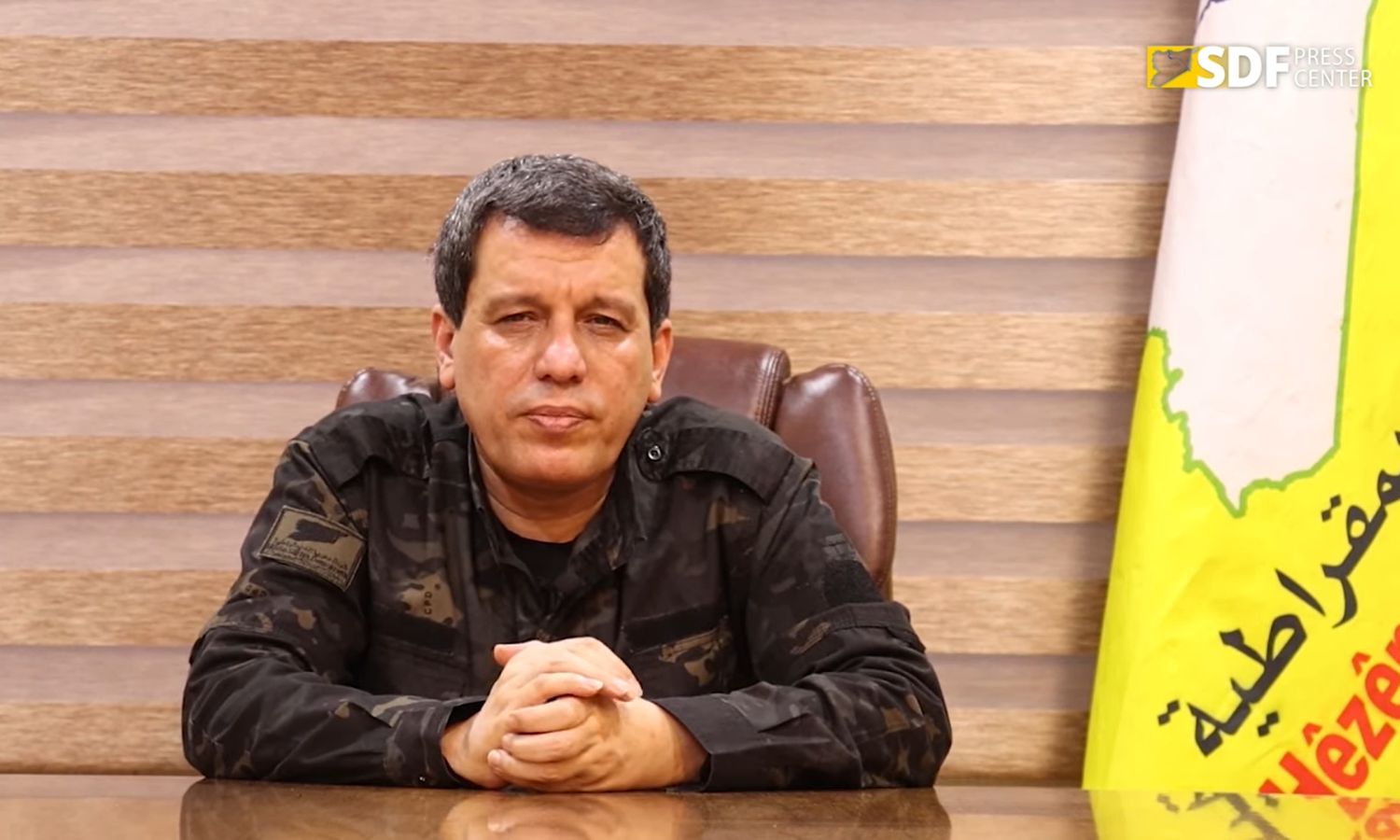



The commander-in-chief of the Syrian Democratic Forces (SDF), Mazloum Abdi, stated that the Syrian regime still relies on security and military solutions, as demonstrated by its recent movements in Deir Ezzor governorate.
During his participation in the fourth general conference of the Syrian Democratic Council (SDC) on Wednesday, December 20, Abdi called for intensified efforts to organize the “national” opposition throughout Syria.
He added that “the opposition associated with foreign agendas has no programs and has become irrelevant” and that international powers do not have “strong programs” to lead the solution, nor do they show the will to compel all parties to exit the crisis.
Abdi believes that the “foreign-affiliated opposition” has failed to find any solution to the Syrian crisis, considering that it has left the field to “terrorist and radical” groups.
He further stated that it was essential for the “genuine opposition” to emerge, leading to the establishment of the Syrian Democratic Council (SDC).
Abdi pointed out that the SDF has taken the SDC as a political umbrella to represent it in international and local political forums.
Regarding the National Coalition of Syrian Revolution and Opposition Forces (Syrian National Coalition), Abdi stated that it does not have any programs and has become irrelevant, as it is associated with a foreign agenda.
The Coalition and the Syrian opposition factions stemming from it adopt Turkey’s position towards the Autonomous Administration of North and East Syria (AANES) and its political arm, the SDC, and military arm, the SDF, as an extension of the Kurdistan Workers’ Party (PKK) in Syria, as the party is classified on the Turkish “terrorism” lists.
Abdi considered that in the absence of international seriousness in finding a solution to the Syrian crisis, the SDC must intensify its efforts to find solutions within a wider framework to organize the ranks of the “democratic opposition” throughout Syria.
Over the past years, AANES has proposed plans for dialogue with the Syrian regime and reaching a consensus solution, but the continued rejection by the regime has thwarted these plans and initiatives, according to previous statements by Kurdish officials.
The Syrian regime views AANES as a “separatist entity” supported by a foreign state (the United States), and accordingly, it previously expressed support for the tribal armed uprising witnessed in Deir Ezzor governorate against the SDF.
Despite the multiparty system in northeastern Syria, the policy of one party and one leader has remained clear, with the continued accusation of AANES of marginalizing Arabs and attempting to appease the West while suppressing other opinions.
Governmental and educational institutions or the military under AANES’ rule force their employees to participate in marches supporting the leader of the Kurdistan Workers’ Party (of Turkish nationality), Abdullah Öcalan, under the threat of dismissal for those who refuse, knowing that the presence of the party in Syria is a pretext for Turkish airstrikes and military operations.
The SDC faces accusations of collaboration with the regime, as it signed several understandings and agreements with the Syrian regime, the latest of which was on December 9, 2020, including the establishment of permanent military points for its forces in the town of Ain Issa in the northern countryside of Raqqa, after threats by factions of the Syrian National Army, supported by Turkey, to take control of the town. This agreement was later expanded to include other areas.
The SDC was established at the end of 2015, concurrently with the establishment of the SDF, gradually transforming into a political arm of the forces composed of a coalition of Arab, Kurdish, and Syriac factions, which received international support in its war against the Islamic State (IS) organization.
The SDC tried to govern its influence in the areas under the control of the SDF and promote the success of its experience on both the local and international levels to ensure its continuity amidst the conflicting influential forces in the Syrian issue. However, it has so far been unable to rid itself of a number of accusations that hinder its acceptance.
if you think the article contain wrong information or you have additional details Send Correction